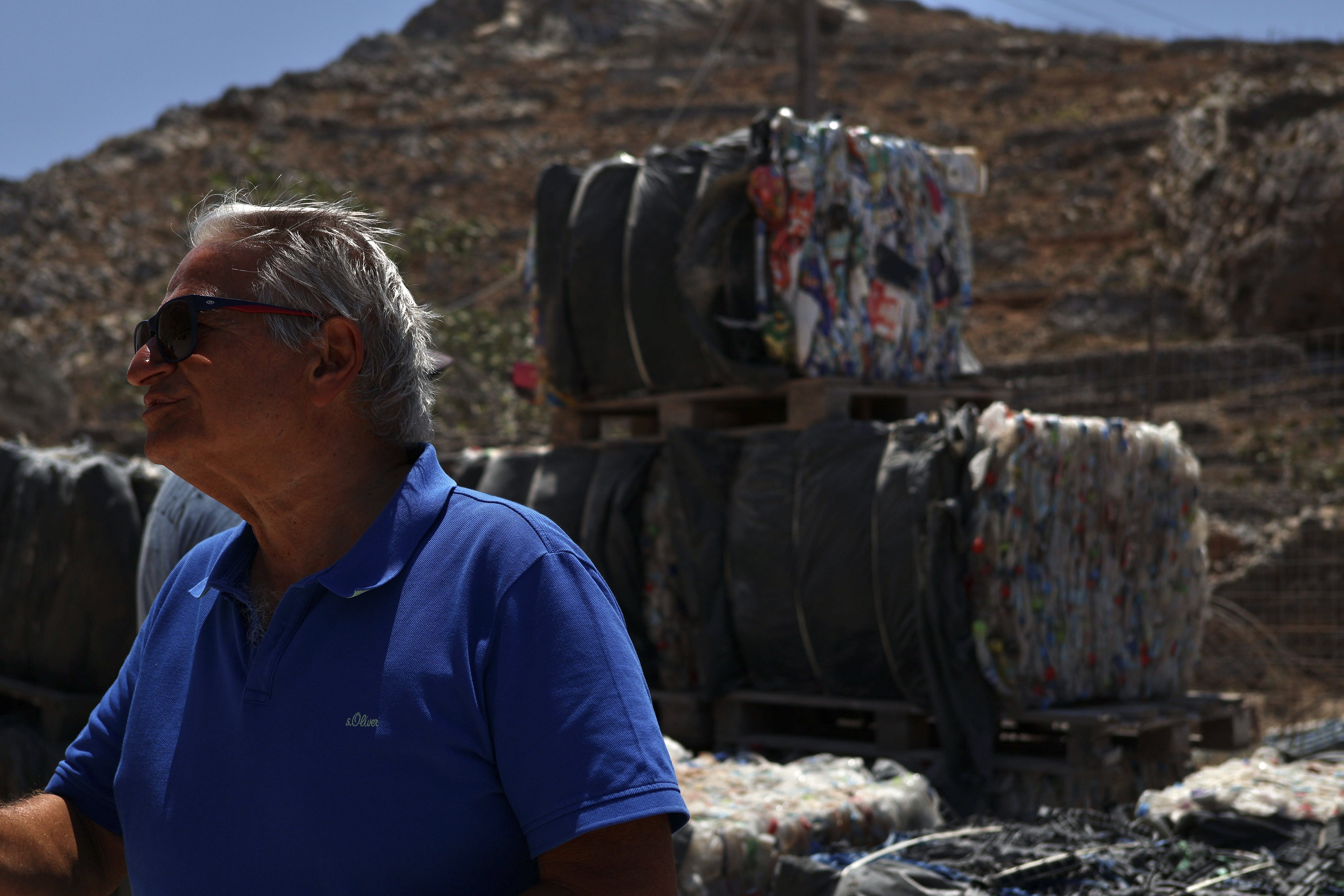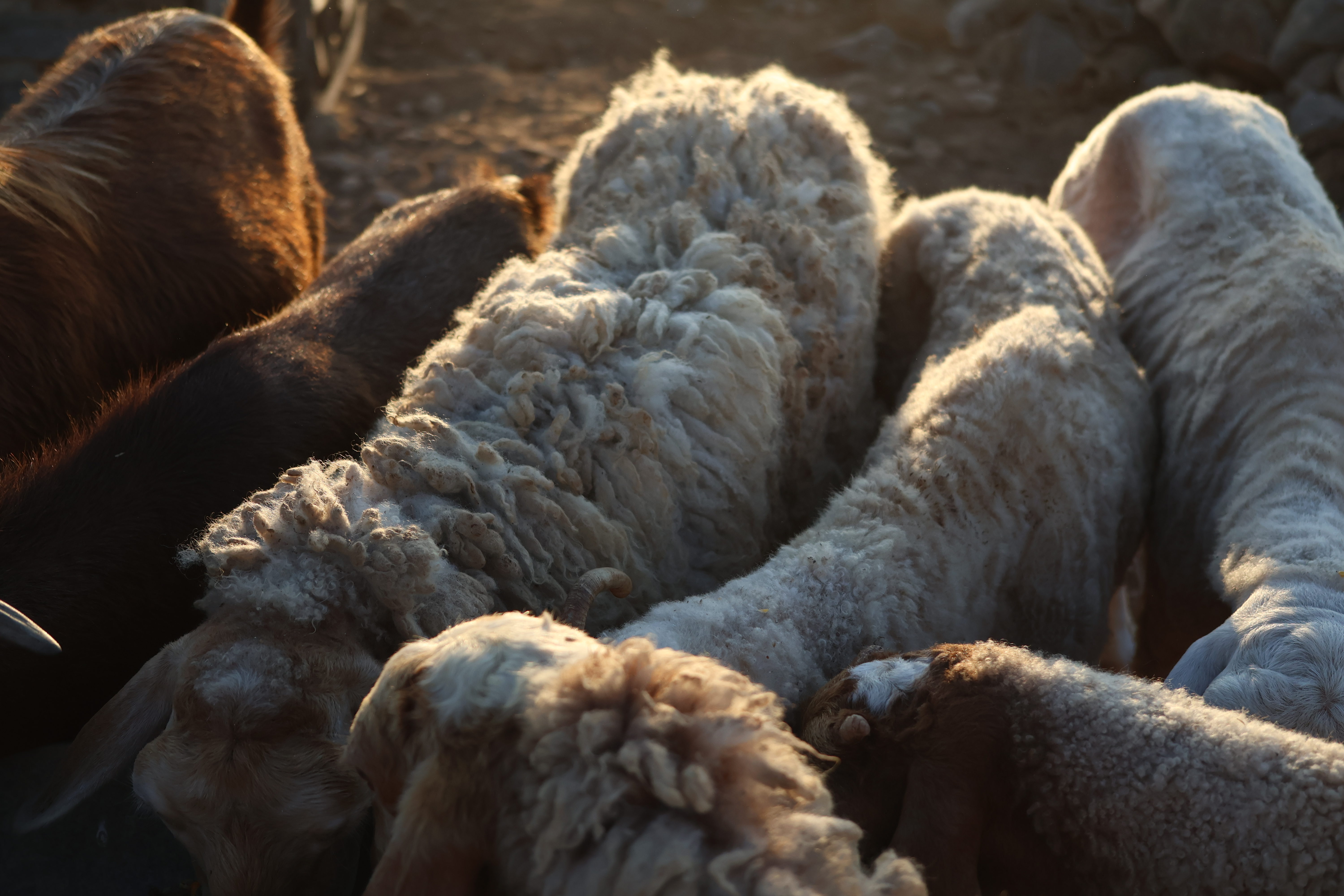Kassos under pressure : Drought, winds and pollution

On the dock of Fri, the main port of Kasos, the sun-drenched hills carve out a dry silhouette against a relentless sky. Among traditional houses and sparse farmland, the islanders face a harsh truth : nature sets the pace of life.
With barely 300 mm of rainfall per year, Kasos ranks among the driest islands in Greece. In summer, the population swells from 1,200 to nearly 5,000, putting tremendous strain on limited resources. “The 5,000 m³ tank and the planned borehole only provide water for a week,” explains agronomist Giorgos Paliouras. “During the tourist season, demand multiplies, and water becomes a luxury.” Alternatives such as desalination or rainwater harvesting are under discussion, but their high costs place a heavy burden on municipal budgets and local households alike. As a consequence, most of the water is imported in plastic bottles.

At the local fresh produce store, a sign of climate stress is impossible to ignore: “No honey this year. All our bees died last summer because of the heat,” says the shopkeeper. “We hope this summer will be different.” Dry and rocky, the island’s soil doesn’t support large-scale agriculture or fruit trees. Only olive trees and fig trees cling on in some areas. Farmers rely on imported fodder to feed their livestock—an expensive and increasingly unsustainable solution.
The ancient stone terraces—remnants of traditional water management—help curb erosion, a lesson painfully learned during the devastating floods of 1994. But while they stabilize slopes, they do little to restore soil fertility.
Deputy Mayor Manolis Parlis sees an opportunity in local compost production. “We should consider compost production in the coming years,” he says. “It would strengthen the soil, reduce our dependence on Rhodes—where we currently import compost—and even create jobs.”
“We should consider compost production in the coming years,” he says. “It would strengthen the soil, reduce our dependence on Rhodes—where we currently import compost—and even create jobs.”
"We should consider compost production in the coming years. It would stregthen the soil, reduce our dependence on Rhodes —where we currently import compost— and even create jobs"
Summers on Kasos are defined by scorching sun; winters by punishing winds. Gusts between 80 and 100 km/h damage crops, uproot trees, and dismantle agricultural infrastructure. A windbreak hedging project is underway, aiming to offer some protection. But initiatives often stall. A recent example: a tree planting campaign by environmental organizations OFYPEKA and NECCA was scheduled for the island. But the trees never arrived. “I hadn’t heard anything about it,” Giorgos admits, reflecting a broader problem of weak coordination between local actors and regional authorities. It's yet another project that seems destined to fail.
Yet, planting native species could stabilize the soil, shield crops from the wind, and even improve the thermal comfort of homes—an urgent need as temperatures climb. Nature isn’t the only threat. Plastic and oil pollution has become a persistent problem. While the streets of Fri are clean and bins are available, the island’s beaches tell a different story. Waves deposit plastic waste daily, turning remote coves into dumpsites. In October 2024, the non-profit Aegean Rebreath—visible in Fri through their distinctive recycling bins—organized an underwater cleanup through the Blue Municipalities Program Network. Volunteers collected 175 plastic bottles and more than 70 aluminum cans from the seabed. On May 12, 2025, a new awareness event targeted local fishermen. “Avene Oil even donated tools to help clean up fuel residues from the sea,” Giorgos reports.

Over the past five years, Kasos has implemented selective waste collection as part of the EU Green Pact. Two weekly pickups go to the sorting station, and once a month, waste is shipped to Athens for recycling or to Rhodes for incineration. “About 20% of waste is currently recycled,” explains Parlis. Abandoned vehicles are sold and shipped to Crete. Despite this progress in waste management, reducing plastic packaging isn’t yet a priority. Plastic remains the go-to material on the island—cheaper and lighter than cardboard. The transition away from single-use items still seems far off.
Life on Kasos is expensive—three times more than in Athens. The reason? Almost everything must be imported: water, fodder, energy, fruit, vegetables. “Wages don’t match the cost of living,” Giorgos laments. “Working conditions aren’t appealing, so many projects stall simply due to lack of personnel.”
On Kasos, sustainability is not a luxury—it’s a necessity. Linking ecology and economy is the island's only path forward. Isolated and vulnerable, Kasos could become a model of Mediterranean resilience, but only if political will, technical expertise, and citizen engagement align. With the ecological insight of experts like Giorgos Paliouras and the civic leadership of Manolis Parlis, there is still hope for this small island battling on many fronts.
Text & Photos : Maëlle Laurent
